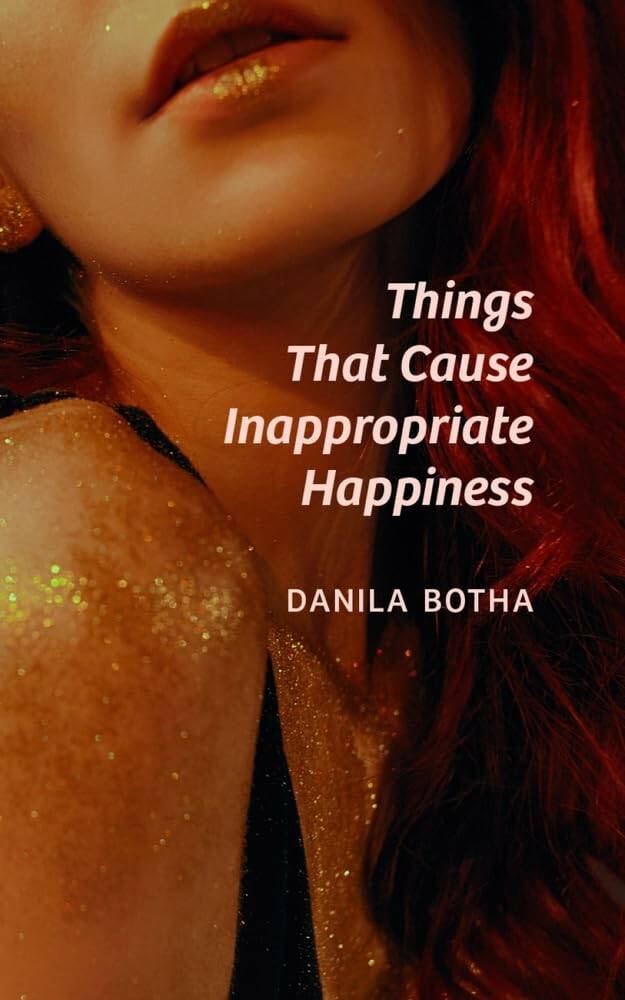Vulnerable women at core of rapid-fire stories
Advertisement
Read this article for free:
or
Already have an account? Log in here »
To continue reading, please subscribe:
Monthly Digital Subscription
$0 for the first 4 weeks*
- Enjoy unlimited reading on winnipegfreepress.com
- Read the E-Edition, our digital replica newspaper
- Access News Break, our award-winning app
- Play interactive puzzles
*No charge for 4 weeks then price increases to the regular rate of $19.00 plus GST every four weeks. Offer available to new and qualified returning subscribers only. Cancel any time.
Monthly Digital Subscription
$4.75/week*
- Enjoy unlimited reading on winnipegfreepress.com
- Read the E-Edition, our digital replica newspaper
- Access News Break, our award-winning app
- Play interactive puzzles
*Billed as $19 plus GST every four weeks. Cancel any time.
To continue reading, please subscribe:
Add Free Press access to your Brandon Sun subscription for only an additional
$1 for the first 4 weeks*
*Your next subscription payment will increase by $1.00 and you will be charged $16.99 plus GST for four weeks. After four weeks, your payment will increase to $23.99 plus GST every four weeks.
Read unlimited articles for free today:
or
Already have an account? Log in here »
Hey there, time traveller!
This article was published 13/04/2024 (599 days ago), so information in it may no longer be current.
There aren’t a lot of contented people in Danila Botha’s new short-story collection, Things That Cause Inappropriate Happiness. There are, instead, a lot of young women who agonize about their bodies, their artistry, their ambitions, their disappointments and their relationships.
Each one of these characters does so in the course of just a few short pages, making most of the 32 stories in this collection compelling, highly readable and frequently relatable, albeit somewhat redundant.
Botha has published two previous short-story collections as well as the novel Too Much on the Inside, which was recently optioned as a film. Most of the stories in this newest collection were previously published in literary journals, and the title story was nominated for a Pushcart Prize in 2023.

Things That Cause Inappropriate Happiness
Originally from South Africa, Botha has lived in Israel, Nova Scotia and now Toronto, and many of her stories are impacted by or set in those realities.
The fact that many of her stories focus on Jewish identity and history gives the collection an extra gravitas at a time when many Jewish writers and books with Jewish subject matter are being review bombed because of their authorship or content.
As it happens, the stories with Jewish content are the strongest in the collection. In the inventive and most impressive story in the collection, Like an Alligator Eyeing a Small Fish, the narrator, Jamie, having just overdosed from drugs, meets up with Anne Frank in heaven. This Anne Frank is an old woman who bemoans the popularity of her childhood diary.
“You don’t want to be a writer who is adored for being young and precious and pure,” Anne tells Jamie. “You want to be complex and unpredictable. If I could go down to earth, sometimes I think, you know what I would do?… I’d go visit all those statues of me, you know where they make me look like Joan of Arc, or I’d visit that famous museum they made for me, and I’d tell anyone who would listen that I was just a person.”
The spectre of the Holocaust reappears in the moving story Able to Pass, in which a young sculptor fashions a golem to go back in time and save her grandmother’s sister. It hovers again in a third story, Proteksiye and Mazel, in which Botha takes readers into the Kovno ghetto, where a young girl named Adaske dreams of escape.
In Ellipsis, Botha flash forwards several decades to a young woman who leaves Canada to return to her birthplace of Israel. In explaining why her parents, like so many others, had left Israel in the first place, she pointedly explains, “For some, it was ideological. Having been forced to serve in the army, after watching their parents drive with guns in their cars, their dads or brothers constantly called for reserve duty, and more than a handful of dead relatives and friends, they wanted an easier life, or a life with a cleaner conscience.”
The most ineffective story in this collection is the first one, Sometimes I Like to Shoot Kids — with the shooting in the title referring to photography. The story simply doesn’t seem to say much or go anywhere, and it risks leaving readers wondering if they should continue with the rest of the book.
The answer to that, of course, is a resounding yes. Readers definitely should persevere with this collection, as they are certain to find that most of the stories, and most of the vulnerable women at their core, are insightful, engaging and, although not happy in nature, evidence of Botha’s obvious talent.
It should be noted, however, that there are many typos in this collection, and, though they don’t change the poignancy of the prose, they do distract and unnecessarily interrupt the flow of the narrative.
Sharon Chisvin is a Winnipeg writer, editor and oral historian.

